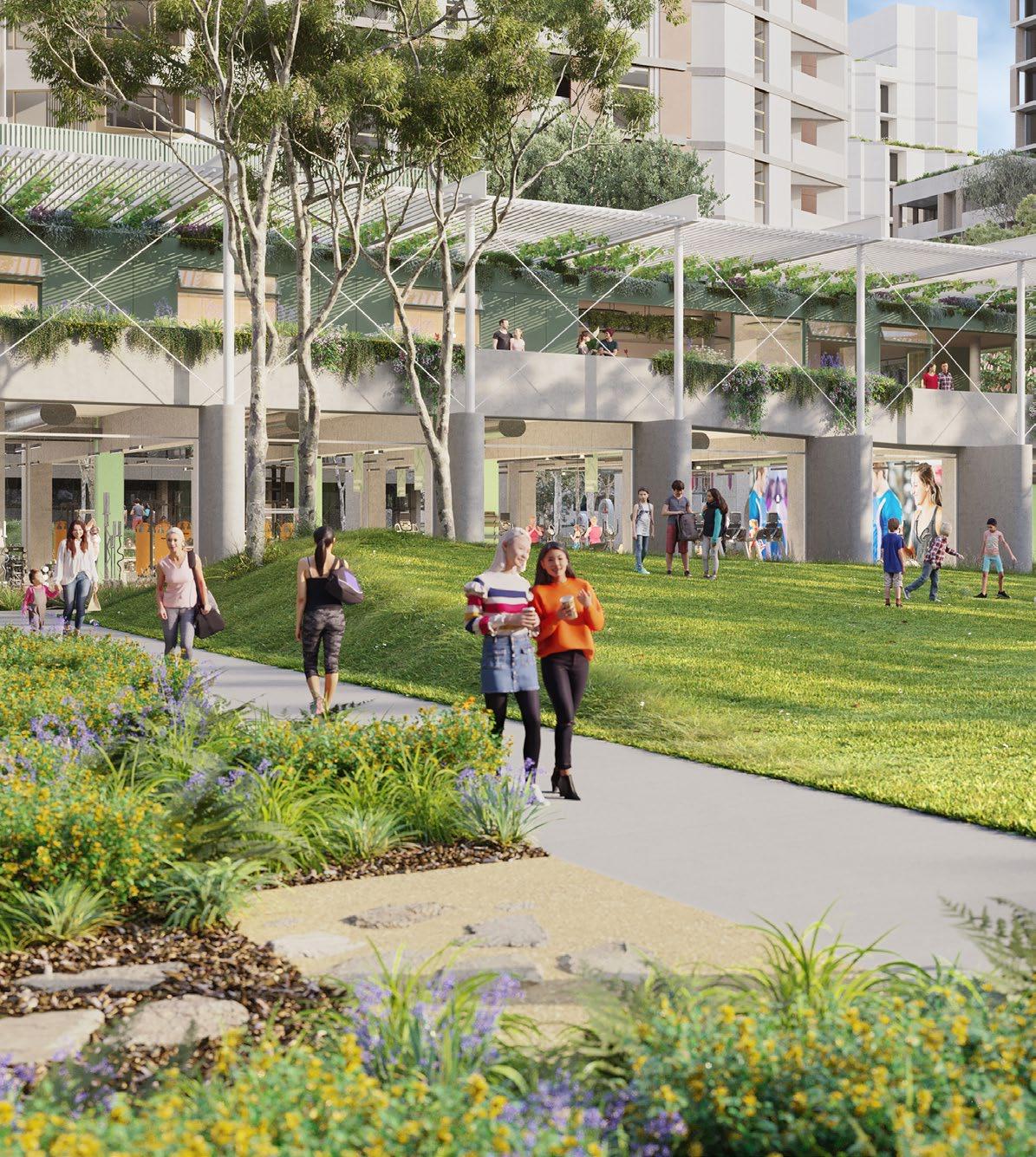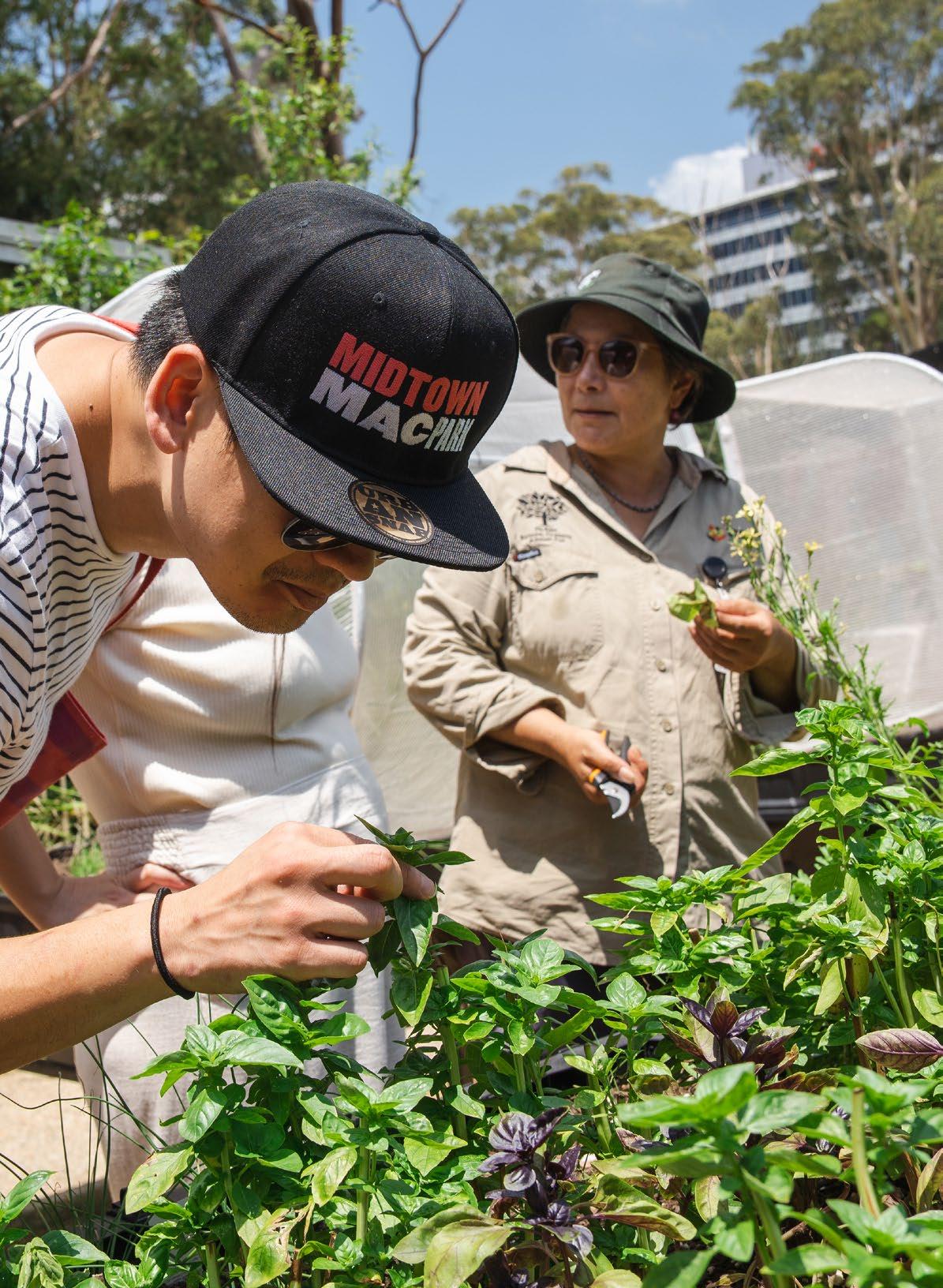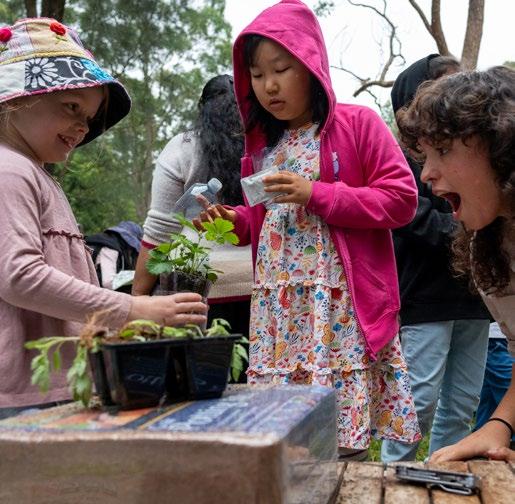WHAT IS COMMUNITY RESILIENCE
Community resilience is the sustained ability of communities to withstand, adapt to, and recover from adversity. A community that is resilient through collective effort will be able to relieve pressure from traditional emergency response services during disasters and enhance the community’s ability as a collective to react to future weather events.
A RESILIENT COMMUNITY A COMMUNITY LACKING RESILIENCE
Require less external assistance during emergencies
Is self-reliant if external resources are limited or cut off
Has greater capacity to endure extreme weather events
Has well-rehearsed emergency plans
Is able to learn from experience to improve over time
Require greater external assistance during emergencies
Relies heavily on external resources in an emergency
Has less capacity to endure extreme weather events
Does not have well-rehearsed emergency plans
Does not learn from experience and continues to make the same errors
MIDTOWN COMMUNICATION CHANNELS
COMMUNITY
NOTICEBOARDS
WORD OF MOUTH
Midtown MacPark website link to the Community Resilience Plan
City of Ryde Council website link to the Ryde Resilience Plan 2030
Midtown MacPark Facebook page
Midtown MacPark Instagram page
NSW SES Facebook page
Australian Red Cross Facebook page
Quarterly meetings with Midtown MacPark residents
Notice board in the lobby of all apartment buildings for all residents to read
Phone calls and door knocking to residents
www.midtownmacpark.com.au
www.ryde.nsw.gov.au/Home
@MidtownMacPark
@MidtownMacPark
@NSWSES
@AustralianRedCross
midtown.community@frasersproperty.com.au
Building Management
Community members
HOW TO DEVELOP AN EMERGENCY PLAN AND EMERGENCY KIT
When emergencies happen there are lots of decisions to make and a lot to do. The Red Cross Get Prepared App helps you prepare for the unexpected by completing your RediPlan and being better prepared for emergencies. Through the app you can:
• Create all–hazards emergency plan
• Prepare your mind though a psychosocial approach to preparing for emergencies
• Simple checklist and actions including the Get Packing Checklist
EMERGENCY PLANNING TIPS AT MIDTOWN
HEATWAVES
• Monitor the weather, you can use the Bureau of Meteorology Heatwave Service.
• Know who you will call for help.
• Know who you will check on, such as neighbours, friends, relatives and those isolated.
• Understand how to manage your medical condition in the heat.
• Store enough medication at the right temperature.
• Check fridges, freezers, fans and air-conditioners work well.
• Have cool packs and make ice cubes.
• Check you have enough food and drinking water.
• Create cool rooms and cross breezes in your house.
• Protect windows from direct sun by using blinds or curtains.
• Know local cool public spaces.
• Have a power failure emergency kit.
BUSHFIRE SMOKE
• Keep alert for Air Quality Warnings
• Listen to local radio or watch TV for updates on fire and smoke conditions in your area.
• Ask your local chemist for face masks which reduce exposure to air particles.
• If you are sensitive to smoky conditions, consider staying with a friend or relative temporarily.
• Create a cool room or area to go to during extreme heat.
• The best way to avoid breathing in smoke is to remain in an airconditioned building with the windows and doors closed.
• If you have trouble breathing, go to emergency or call 000 for an ambulance.
STORMS & FLOODING
• Keep alert for Severe Thunderstorm Warnings or Severe Weather Warnings.
• Secure or put away loose items from around the balcony.
• Park your car under secure cover.
• Heavy rainfall can cause flooding. Never drive, ride, or walk through floodwaters.
• Check your insurance policy.
• Unplug and avoid using electrical equipment connected to mains power, landlines phones or modems.
• Stay indoors, listen to your local radio station and other media for information, updates and advice.
• For emergency help in floods and storms call the NSW SES on 132 500.
Sources: https://www.health.nsw.gov.au/environment/beattheheat/Pages/heatwave-checklist.aspx; https://www.rfs.nsw.gov.au/resources/bush-fire-survival-plan; https://www.ses.nsw.gov.au/storm-resources/before-a-storm/prepare-your-home/
KNOW YOUR NEIGHBOURS
There are steps you can take to become a more resilient person in times for diversity, the main one is to be connected. Building strong, positive relationships with loved ones, friends and neighbours can provide you with needed support in times of need. Relationship Australia share some ideas on how you can start to get to know your neighbours and feel more connected: 20 Connections Tips to Create Belonging
CITY OF RYDE COUNCIL RESILIENCE PLAN
The City of Ryde has adopted the first comprehensive action plan for resilience at a local government level in New South Wales. The Ryde Resilience Plan 2030 is available to be viewed at www.ryde.nsw.gov.au/resilienceplan
The Plan sets out how we can work together to become more adaptable and be better prepared for responding to local and global events that strongly impact our way of life.
COMMUNICATION PLAN
A Communication Plan outlines the way in which the Community Resilience Plan will be delivered to the community of Midtown MacPark. The Community Development Manager will oversee this and will work with local stakeholders such as City of Ryde Council to partner on awareness events and activities to help residents to feel empowered in emergency preparedness.
According to the Community Resilience Guidelines for Developers, there are four key areas that should be considered when designing an engagement process. Engagement for Midtown MacPark’s Community Resilience Plan is presented in Table 1 and has been prepared with reference to the following four key areas.
• Awareness
Generally, people who are not aware of potential impacts from extreme weather will more likely be unprepared to react to these events.
• Values
Understanding community perception and encouraging their willingness to be prepared for high-risk events.
• Capacity
Building the capacity of the community to respond to potential hazards and understanding the skill gaps where community resilience support needs to be focussed.
• Regulation
Understanding the external influences on the community such as state or council regulations or policies.
Timing of the community engagement is also important to ensure that essential messages and actions are heard by all residents, initially and well into the future of the development. The two types of staging are:
• Initial – when the residents move in; and
• Ongoing – during the duration of the development life.
TABLE 1 – MIDTOWN MACPARK COMMUNITY ENGAGEMENT PLAN
ACTION OBJECTIVE
WELCOME PACK
SOCIAL MEDIA
COMMUNITY INFORMATION SESSION
TRAINING AND INFORMATION WORKSHOPS
• Introduce new residents to the community resilience plan.
• Provide reference on local emergency contacts.
• Promote community events.
• Provide Community Resilience information through Midtown MacPark’s social media channels.
• Inform community members about building resilience.
• Share up to date information and inform residents of potential hazards and risks
• Promote community events.
• Distribute community information to a wide audience
• Allow dialogue between community members and other stakeholders.
• Provide the knowledge and skills for residents to respond to extreme weather and potential hazards.
• Respond to skills gaps within the community
• Empower the community to assist during and after disasters.
• Encourage the dissemination of information through word of mouth.
KEY AREAS TIMING
Awareness Values Capacity Initial
Awareness Values Ongoing
Values Capacity Ongoing
Capacity Ongoing
EVALUATION
• Ensure that feedback is encouraged and where appropriate incorporated into the CPR.
Values Ongoing







